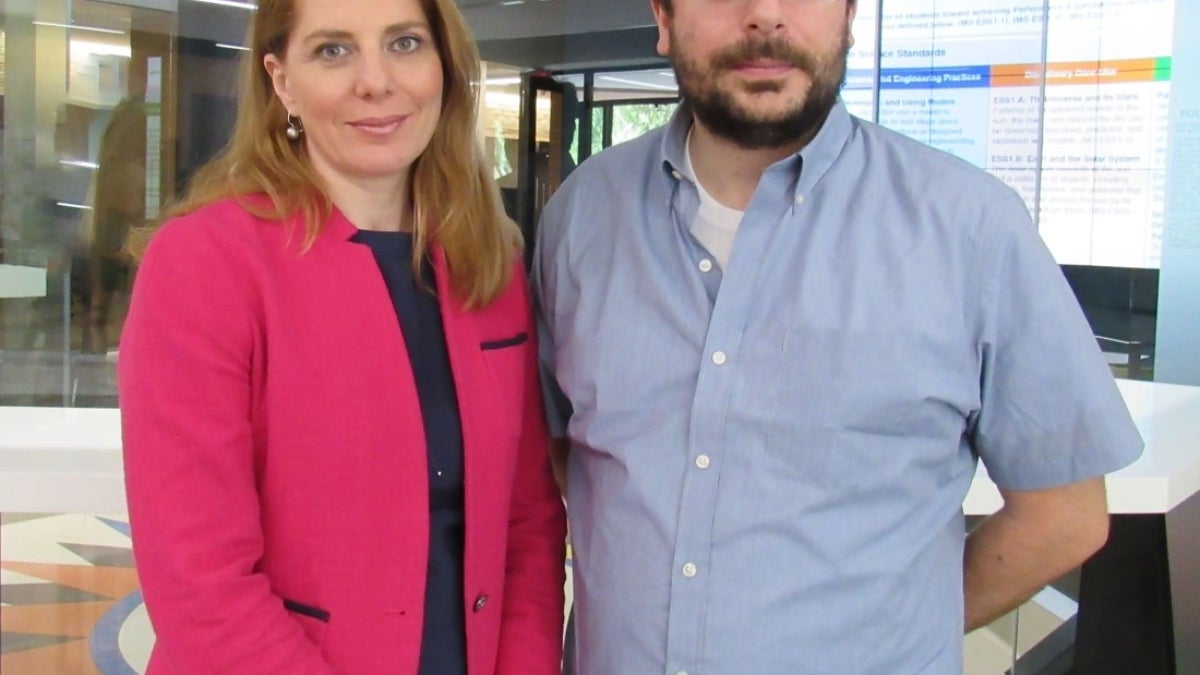Two ASU physics professor named as Scialog fellows

Banu Ozkan and Steve Presse, physics professors at ASU.
Scialog – Research Corporation for Science Advancement and the Gordon and Betty Moore Foundation have named Banu Ozkan and Steve Presse, physics professors at Arizona State University, as outstanding Scialog fellows.
Scialog invests high-risk and highly-impactful discovery research on untested ideas with the ultimate goal of providing fundamental principles that make a collection of molecules within a cell produce behaviors associated with life.
Scialog fellows submit proposals for seed funding of advanced, interdisciplinary scientific research by creating collaborative teams in a closed annual conference. The collaborative teams are comprised of theorist and experimentalist scientists that work together at the interface of theoretical physics and cell biology to implement cutting-edge topics.
Ozkan and Presse were both awarded independent awards.
Presse has proposed to use machine learning tools in order to classify cell types involved in cancerous organoids. The ultimate goal is to map out roles and predict future dynamics of leader cells involving in the propagation of cancer. He will collaborate with Professor Michelle Digman at the University of Irvin and Professor Bo Sun at Oregon State University.
Ozkan will study the mechanism by which distant protein residues communicate, determine how prevalent allostery among all proteins in proteome truly are, and unravel the second secret of life “allostery” through recently-developed theoretical and experimental methods from the Ozkan and Fordyce labs.
More Science and technology

Indigenous geneticists build unprecedented research community at ASU
When Krystal Tsosie (Diné) was an undergraduate at Arizona State University, there were no Indigenous faculty she could look to…

Pioneering professor of cultural evolution pens essays for leading academic journals
When Robert Boyd wrote his 1985 book “Culture and the Evolutionary Process,” cultural evolution was not considered a true…

Lucy's lasting legacy: Donald Johanson reflects on the discovery of a lifetime
Fifty years ago, in the dusty hills of Hadar, Ethiopia, a young paleoanthropologist, Donald Johanson, discovered what would…